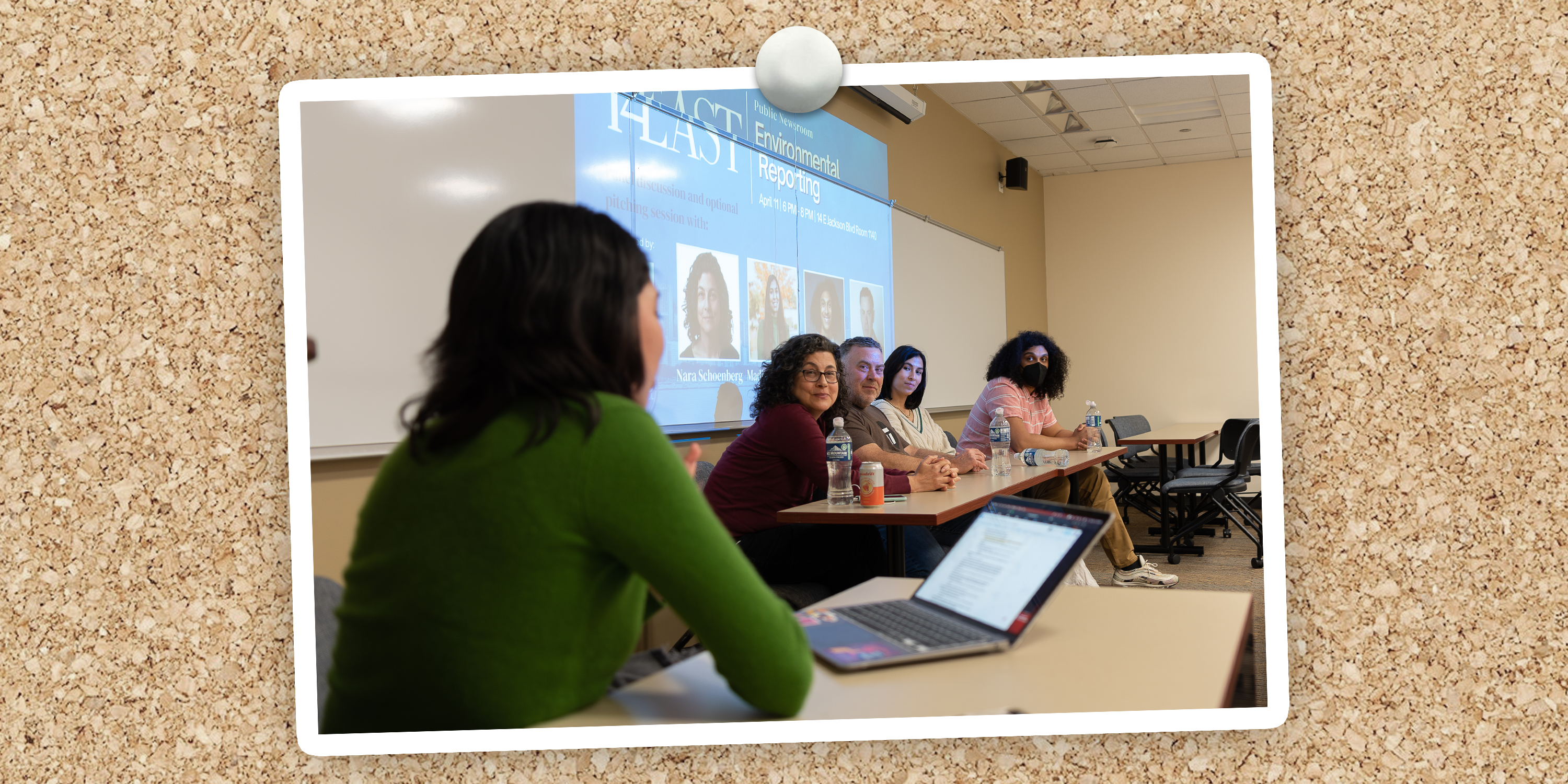Reporting on the environment is a pressing beat worldwide. In Chicago, the coverage of air pollution, food access and other environmental issues shouldn’t leave out the communities most impacted which are often fighting and calling attention to these issues. On Tuesday, 14 East held a public newsroom with four Chicago-based environmental and community-focused journalists: Brett Chase, Madison Savedra, Maxwell Evans and Nara Schoenberg. Here are some of our takeaways from that conversation.
No space for both sides
Our panelists had much to say regarding the journalistic practice of both-sides journalism in environmental reporting. “If there’s a clear right or wrong, I’m not afraid to write that,” said Block Club reporter Maxwell Evans, who covers Hyde Park, Woodlawn, South Shore and the Southeast Side. Although polarization exists around certain issues, he says there isn’t much sense in giving a platform to misinformation.
When covering a story that involves a business and the environment, Sun-Times reporter Brett Chase said that he’ll include the company’s PR-tailored statement but will go back to the community’s perspective.
Amplify community voices
The panelists agreed that their role is not to dictate a community’s story and experience but to listen and amplify the message of those directly impacted. Where there are environmental injustices happening in Chicago, there are community groups and individuals working to address the issue. “They guide what goes on with my reporting,” said Evans.
Mark it on your calendar
Environmental struggles are ongoing, and there are constant developments that require follow-up coverage but may be easy to miss. Chase recommends marking it on your calendar. Stay informed on the issue and stay in touch with your sources. Many issues are also intersecting and require you to stay on top of the various aspects such as the political side. Chase says, “I kind of feel like I need to know each issue inside out.” Becoming a documenter with City Bureau can also help you to stay on top of what goes on in city hall.
Making the science more digestible
As a nonexpert writer for other nonexperts, it may be difficult to write about the scientific aspect of the environmental issue you are covering, but Schoenberg says, “The key is understanding the science.” Our panelists recommend staying in touch with an expert and asking a lot of questions. Don’t opt for simply plugging in a quote from that report you had a hard time deciphering yourself. If you don’t understand it, neither will your readers.
Connect people with people
There is a lot of anxiety that can be associated with staying up with the latest news on the environment. You can’t fake hope in a story, but you can highlight the human aspect. Giving consistent attention to a community is important to report on the issues they face as well as the victories and the joy. This can look like covering community gardens or birding groups. Savedra suggests providing people with information about what is going on in their community that they can plug in and stay involved with.
If you are interested in covering a topic on the spectrum of environmental reporting, reach out to us!
Header image by Magda Wilhelm




NO COMMENT